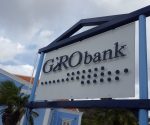St. Maarten informal economy grounded to a halt
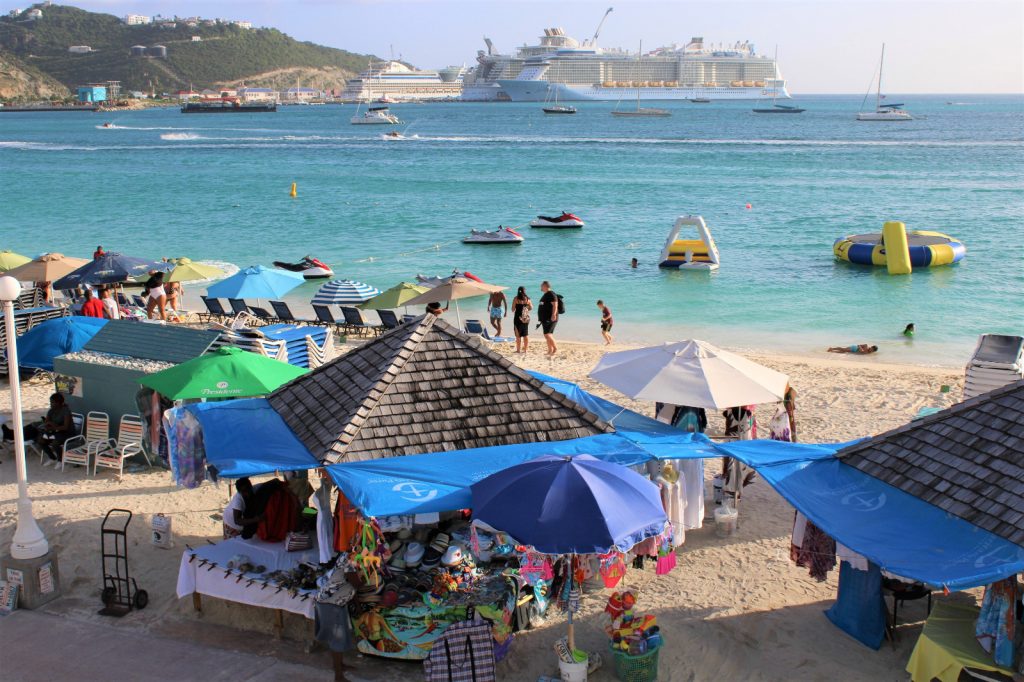
~ St. Maarten’s underground economy has been grounded to a halt. StMaartenNews.com brings you an analysis ~
The current population of St. Maarten is 42,797 as of Tuesday, May 4, 2020, based on the latest United Nations estimates. The exact number may be twice as high. According to the Justice Department, one in two persons in St. Maarten is an undocumented immigrant who operates ‘underground’. COVID-19 is now forcing them to come out of the shadows.
St. Maarten has, by far, the largest informal economy within the Kingdom of the Netherlands. Unregistered businesses, craft workers, street and beach vendors, literally thousands of people have been making cash every day doing odd jobs.
‘Hawkers’ were paid around 30 dollars a day on days when ships were in port. Street vendors made 20-40 dollars a day selling Chinese-made souvenirs — these they bought in an Indian-owned wholesale store in Cannegieter Street for a few dollars each. These products were then offered to tourists on the Philipsburg Boardwalk for three times the price.
Women braided hair or gave massages on the beach. Illegal construction workers went from one building site to the next, agreeing to work for less than 70-80 dollars a day – the price for a legal mason or electrician. Illegal workers cleaned offices, restaurants and houses.
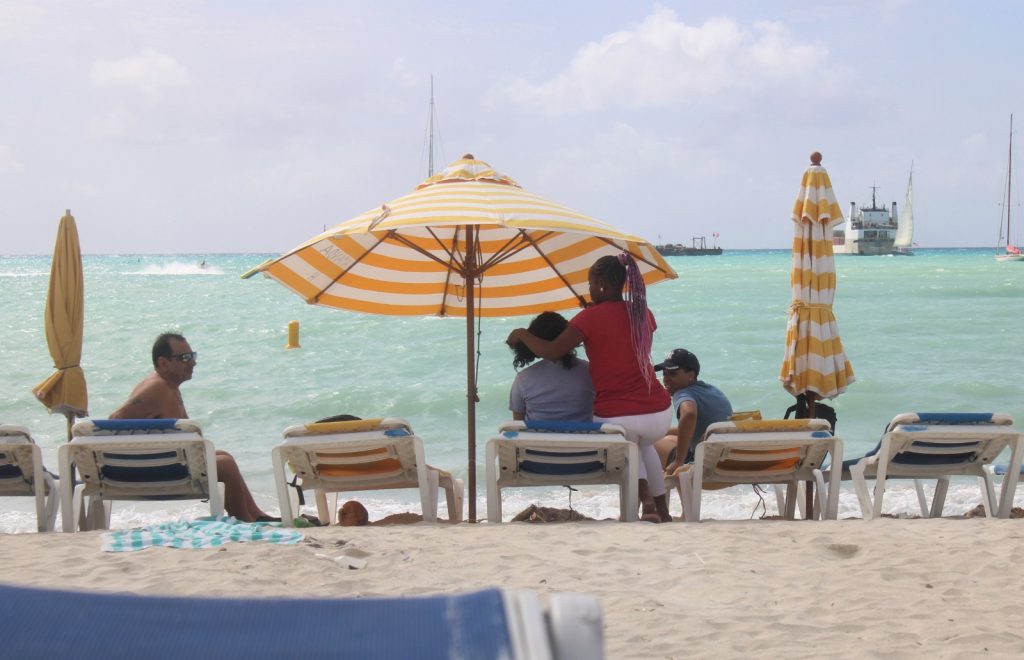
According to the IMF, the Netherlands has the fourth-smallest shadow economy in the world, after 1) Switzerland, 2) Austria, and 3) Luxembourg. In comparison, the shadow economy of St. Maarten is estimated to be 6 to 7 times as big as the Netherlands. But in the Caribbean that is not exceptional. The Caribbean region, with its 28 countries and over 44 million people, represents one of the largest informal economies in the world.
The informal, underground, or shadow economy includes not only illegal activities but also unreported income from the production of legal goods and services, either monetary or barter transactions. A shadow economy does not happen by accident. It is a recognized consequence of imperfections in the economic system and inadequacies in economic policy. The factors that generate and foster the growth of a shadow economy are many and complex. Relevant literature considers the following to be the most critical: excessive tax burden, government over-regulation of businesses, and poor performance by government bodies (tax, judiciary, police, and other authorities).
A shadow economy exists in direct relation to the size of the tax burden coupled with low chances tax evasion will be detected. A high probability of detection and imposing stiff sanctions are the only deterrents to tax evasion taking place. Increasing the tax burden makes it more cost-effective to operate in the informal sector.
But this is one aspect, the other being the development of undocumented immigration. In St. Maarten, almost all illegal immigrants came to the island as tourists and overstayed their welcome. Venezuelans and Nicaraguans have even been considered refugees and treated as such by the authorities.
In the midst of every crisis, lies great opportunity, said Albert Einstein. People on neighboring islands saw opportunities in St. Maarten in the aftermath of two of the biggest catastrophes in the history of the island, hurricanes Luis in 1995 and Irma and Maria in 2017. The reconstruction programs brought along money and job opportunities.
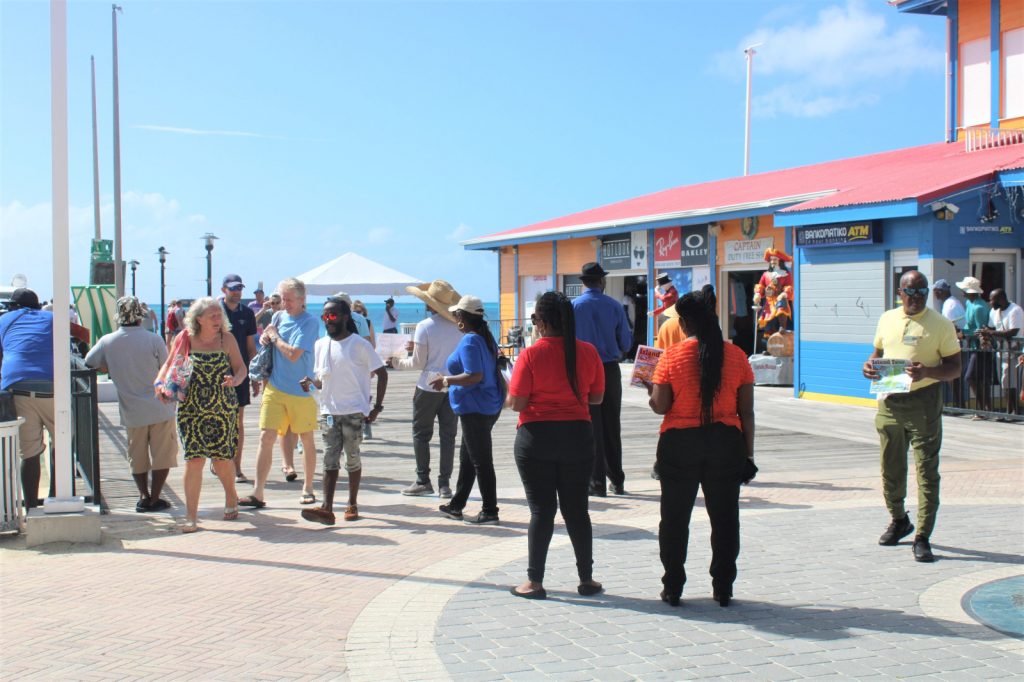
In 1995, the damage to housing was inestimable. Whole hillsides were transformed into junkyards of multicolored scrap metal as Luis’ 130 mile-per-hour winds flattened the shanties of the poor. Some 11,000 immigrants from the Dominican Republic and Haiti lived in nine shantytowns on the Dutch side. The government moved quickly to bulldoze their neighborhoods even as residents were trying to rebuild their shacks. The government urged those with residency papers to register at a tent camp. Only 400 persons did. The government maintained that 2.000 immigrants left the island voluntarily; however, most of them had been deported.
After Hurricane Luis, St. Maarten reconstructed itself to a higher level. The government introduced more restrictive conditions for the entry, transit, and stay of foreigners, extended identity checks, and more rapid execution of deportations. Each year 400 to 600 illegal immigrants were deported, which led to fierce protests, also from business owners. They saw that the growing number of deportations was going to deprive them of cheap labor. Some people went as far as slashing police car tires to limit the number of round-ups.
According to reports, 70% of buildings on St. Maarten were damaged or destroyed by Hurricane Irma in September 2017. The country needed a lot of work done to rebuild again. The St. Maarten recovery program and hundreds of millions in insurance money facilitated reconstruction efforts, and also attracted new groups of fortune seekers. In the aftermath of the hurricane, hundreds of Venezuelan men found their way to the island to work in construction.
According to the police, as presented to Parliament, presently, no less than 2.500 Venezuelans remain on the Dutch side of the island. However, this information is no longer correct, as hundreds of Venezuelan men returned to their families in Venezuela before Christmas last year. Job opportunities had rapidly diminished since the beginning of 2019.
Migration is fluctuating. People move back and forth between their home country and St. Maarten. “Where the circulation of people is concerned, up until recently no visa was required for Caribbean citizens, and the absence of a border between the French and the Dutch sides ensured the movement of people from the Caribbean, Asia, and Europe – who make up nearly 80 percent of the total population – between the two parts of the island. The recent migrations of these people succeeded the migrations of St. Martiners themselves,” states Catherine Benoit, author of ‘Saint Martin’s change of political status: Inscribing borders and immigration laws onto geographical space’.
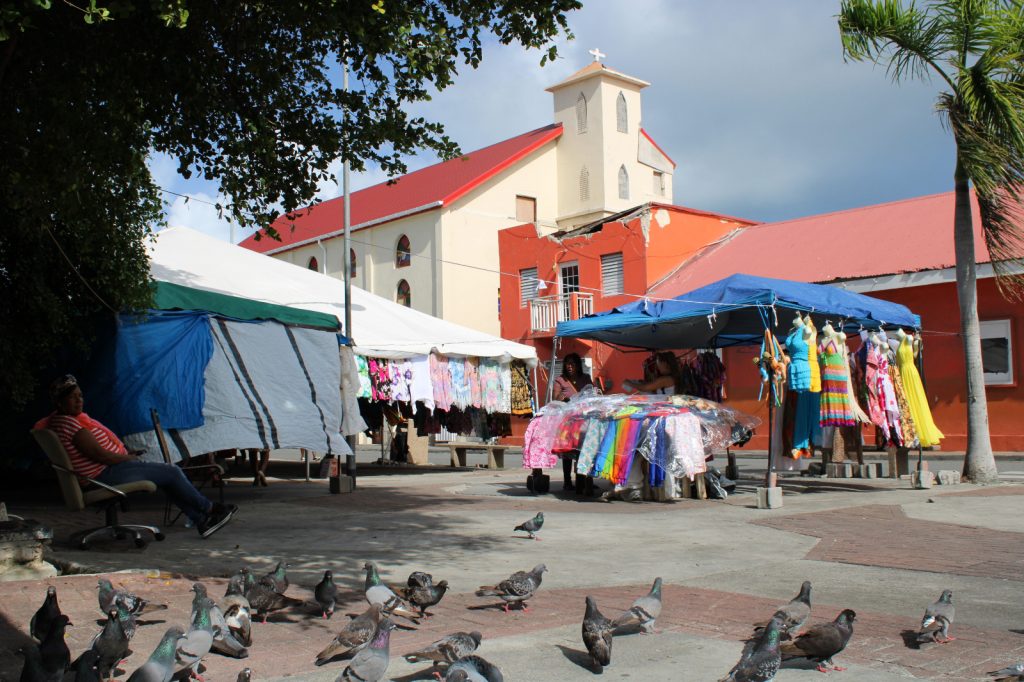
New shantytowns arose, like the ones near the Dump. St. Maarteners own the land, but the shanties are run by Dominicans collecting 250 dollars or more in rent for shacks made out of wood and other materials found on the landfill. Hundreds of illegal immigrants cramped together in plywood palaces.
As St. Maarten grapples with the consequences of the COVID-19 pandemic, vulnerable workers in the informal sector have been hit hard. It’s a feature of Caribbean ingenuity and resilience that informal workers will turn to whatever options available to provide for themselves and their families. But it comes with a cost to the whole country.
Informality results in lower tax revenues. The government is under pressure since economic relief efforts due to COVID-19 have primarily focused on providing payroll support to companies and on financial aid to individuals. Companies may yet call on the government to provide loss-of-income support and tax relief. However, fewer tax revenues mean smaller funds for law enforcement, education and health care.
As the global economy is facing a protracted crisis, it is likely to depress demand for the products and services of informal businesses. While the underground economy has come to a screeching halt, the government has no means and no money for social programs. Like illegal immigrants, and many who worked in the informal economy, many St. Maarten citizens are deprived of a steady income. But the government has no money for rebooting and jumpstarting the economy.
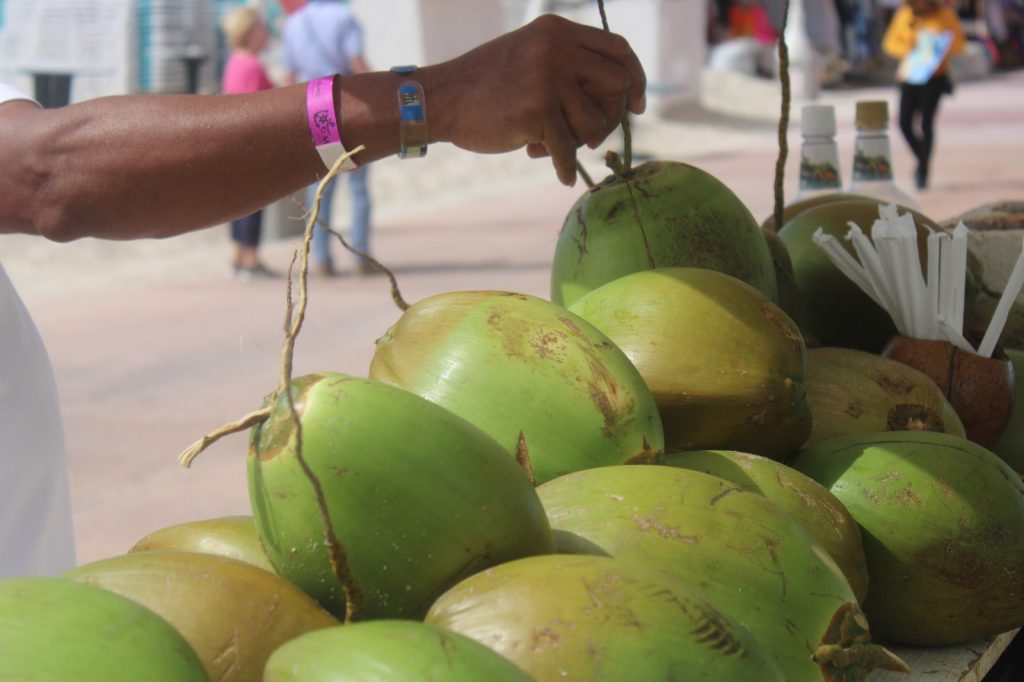
So what will save us now?
Can the underground economy that has flourished so many years somehow miraculously save us? Or is the grounded informal economy dead and never to be revived again? Kristalina Georgieva, IMF managing director, said at a forum: “If we get a better handle on informality, it may unlock much-needed progress in a range of areas.”
In the small market of St. Maarten, informal business practices will have to come to an end, and everyone must start playing by the rules.
###
Related articles:
COVID-19 Income Support only for permit holders
Black payments come to haunt local jeweler
Venezuelans continue to cry for help
Venezuelans in St. Maarten are hoping for quick repatriation
Corruption follows the Venezuelan diaspora
Hundreds of illegal Venezuelans leave St. Maarten

















